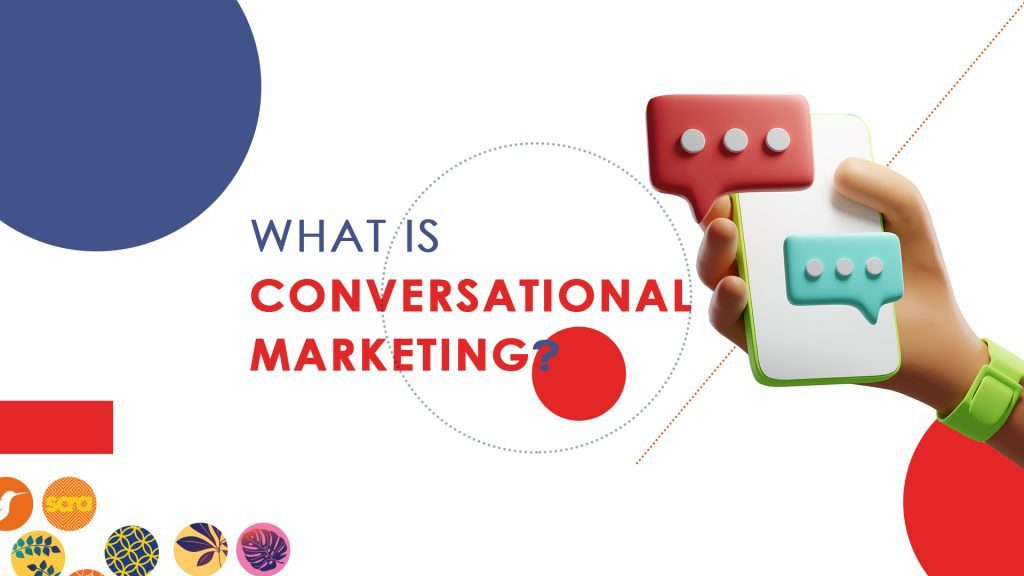In a world divided between early birds and night owls, catering to diverse interests and preferences is essential for businesses. To ensure long-term success, establishing a genuine connection with customers is paramount. This connection is nurtured through an innovative approach known as Conversational Marketing.
Unveiling the Essence of Conversational Marketing
Conversational Marketing is a contemporary strategy employed by forward-thinking companies. Its core objective is to establish an ongoing dialogue with users through friendly, day-to-day conversations. This approach cultivates a cohesive rapport with both current and potential customers.
The Impact of Conversational Marketing on Businesses
Conversational Marketing revolves around the concept of being present and engaged with users in a meaningful manner. This strategy holds several key benefits for businesses:
Enhanced User Interaction:
it fosters real-time, engaging conversations with users, fostering a stronger connection.
By actively conversing, businesses can tailor their offerings according to individual users’ needs.
Effective User Engagement:
it drives effective user engagement through ongoing, meaningful interactions.
Businesses can engage with customers in real time, addressing inquiries, providing information, and resolving issues instantly. This rapid response enhances customer satisfaction and loyalty.
Lead Generation and Qualification:
By engaging visitors in real-time conversations, businesses can identify potential leads and qualify prospects based on their needs and preferences. This accelerates the sales process.
Conversations with customers provide valuable insights into their pain points, preferences, and expectations. This data can inform product development, digital marketing strategies, and customer service improvements.
Automated chatbots and messaging platforms reduce the need for human intervention in every customer interaction, streamlining processes and reducing operational costs.
Event Promotion and Registrations:
Businesses can use conversational marketing to promote events & activation, webinars, or workshops and even allow customers to register seamlessly through chatbots.
Enhanced Brand Perception:
Providing instant assistance and personalized recommendations through conversational marketing enhances a brand’s image as responsive and customer-centric.
In summary, conversational marketing has revolutionized customer interactions and engagement, leading to improved customer satisfaction, higher conversion rates, and more valuable insights for businesses. As technology continues to evolve, conversational marketing is likely to play an increasingly central role in customer engagement Marketing strategies.
Models of Conversational Marketing
Two main models underpin Conversational Marketing:
Chatbots: These artificial intelligence software programs employ a natural language and a friendly tone. Users initiate conversations based on predefined topics, and the system responds automatically based on the questions asked.
Live Chats: Incorporating live chat software or applications on websites facilitates real-time interactions with users. This dynamic approach bridges the communication gap seamlessly.
Read More: Why inbound marketing important for lead generation?
Diverse Applications of Conversational Marketing
Chatbots and live chats find utility across various business aspects, including:
- Email Marketing
- Forms
- Landing Pages
- FAQs
Read More: Digital Marketing Strategies for the Food Drink Industry
Real-world Examples of Conversational Marketing
Domino’s Pizza: Through the “Domino’s Anywhere Initiative,” customers can now order pizza through various platforms like Facebook, Slack, and Twitter by simply texting the keyword “Pizza Emoji.”
Sephora: The global cosmetics brand leverages messenger apps to understand their target market better. Users answer questions related to age, preferences, and favorite products, thereby enhancing engagement and personalization.
Pioneering a Dynamic Connection
In conclusion, Conversational Marketing thrives on the principle of a genuine, ongoing dialogue. Businesses embracing this strategy position themselves as approachable, attentive, and customer-centric—essentials for fostering lasting customer relationships.



